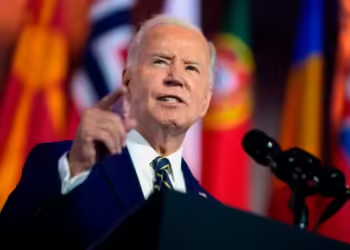A woman accepted $50 from a West Virginia police chief so he could rape her 17-year-old relative, feds say
The Washington Post
By Jonathan Edwards
In exchange for $50, Kristen Naylor-Legg brought her 17-year-old family member to a community center in June 2020 where a local police chief allegedly raped the girl, federal prosecutors claim.
Naylor-Legg, court documents say, stood by — directing the girl during the alleged rape and providing her with towels to clean up afterward. A West Virginia police chief, who was on duty, according to court documents, allegedly failed to pay the woman the agreed-upon price and left.
On Wednesday, Naylor-Legg, 28, pleaded guilty in a West Virginia federal court to one count of conspiracy to sex traffic a minor. She faces up to life in prison at sentencing, which is scheduled for December. Regardless of how much time she gets behind bars, she will have to register as a sex offender.
Her attorney did not respond to a request for comment.
Larry Allen Clay Jr., the now ex-police chief of the small town of Gauley Bridge, is charged with sex trafficking a minor using coercion and conspiracy. Clay, who was 57 at the time of his March arrest, also worked roughly eight years as a Fayette County Sheriff’s deputy.
He pleaded not guilty in May; his trial is scheduled for November. His lawyer, Sebastian Joy, declined to comment.
The case against Naylor-Legg started when the 17-year-old girl told a federal investigator in September and October 2020 that Naylor-Legg struck the alleged deal with Clay several months earlier.
Clay allegedly raped the girl twice in June 2020, U.S. Department of Homeland Security agent Brian Morris wrote in a sworn affidavit. The girl told investigators Clay knew she was 17 because he and Naylor-Legg had discussed her coming 18th birthday.
Naylor-Legg also took photos of the girl’s breasts and buttocks and, at times, directed the teenager to take the same kinds of pictures of herself, Morris wrote in his affidavit. Naylor-Legg then sent them to Clay and unnamed “other individuals,” who allegedly paid her for the images using the mobile service Cash App, the documents add.
But Naylor-Legg offered Clay more than pictures, according to the affidavit. After Clay allegedly told her to meet him one day in June 2020, she texted her 17-year-old family member. Then she drove the girl to the rendezvous spot, court records state.
Clay allegedly arrived in a gray police vehicle wearing his uniform, the affidavit says. He allegedly forced the girl to perform oral sex on him before raping her on the police vehicle, according to the affidavit. He then allegedly paid Naylor-Legg, who was present during the entire encounter, and left.
Later that month, the three went to a police substation inside a city-owned community center, authorities said. As Clay allegedly raped the teen, Naylor-Legg told the girl to “let him” finish, court documents state, adding that “it would not be a problem because he was ‘fixed.’ ”
When it was over, Naylor-Legg gave her towels to clean herself, the affidavit says, and Clay allegedly failed to pay before leaving.
After interviewing the teenager months later, investigators found the towels at the substation where she said they had left them. Investigators had forensic scientists with the West Virginia State Police test the towels. They contained DNA from both the girl and Clay, court records state.
Clay allegedly had bigger plans for the 17-year-old girl, federal prosecutor Jennifer Rada Herrald told a judge at a hearing in March. The former police chief allegedly told the teen “he could be her sugar daddy,” Herrald said, and that he could arrange for other law enforcement officers to pay $100 to rape her. One officer who had been charged with two counts of sexual assault in a nearby county told authorities Clay had reached out to him to see if he was interested in such an arrangement, the prosecutor alleged.
Clay and Naylor-Legg allegedly did not stop with the 17-year-old, Herrald added. The two adults were allegedly having sex with each other, she said, and one time, another minor walked in on them. Both allegedly tried to coax the child to join them, Herrald said.
In arguing to keep Clay locked up, Herrald told the judge that — as a police chief and sheriff’s deputy — the man had held a position of authority granted to him by the community. But, she said, he used the power society gave him to hurt a child.
“The idea that a minor, who was being told she must engage in commercial sex with a law enforcement officer in uniform or in a police substation, could feel any chance of saying no is unfathomable,” the prosecutor told the judge. “His use of his authority made his offense all the worse and all the more brazen.”
Jonathan Edwards is a reporter on The Washington Post’s Morning Mix team. Before joining The Post, he covered public safety for The Virginian-Pilot and Lincoln Journal Star.









